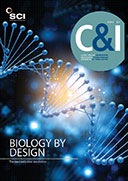World’s biggest economic bloc must remain strong to master future challenges, chemical producers say.
On the eve of the 60th anniversary of the founding of the EU in late March 2017, thousands of EU citizens, including an estimated 25,000 in London – interestingly, four times more than in Berlin – took to the streets to demonstrate solidarity with the principle of European unity.
Despite the many challenges the (still) 28 member alliance faces, many commentators said Europe is not in disarray, but in better shape than popular opinion tends to believe. ‘The EU is reviving. People are coming together to celebrate it, politicians are suddenly speaking positively about it, and even the economy is flourishing,’ the German news magazine Die Zeit wrote to mark the occasion.
Perhaps impressed by the quizzes that occupy pride of place in Sunday newspapers and weekly magazines, Die Zeit asked rhetorically, where do the happiest people live, where are the most cities worth living in, which countries have the best healthcare or the most Olympic champions? The answer: Clearly, Europe. ‘No more tired, old worn-out continent, Europe has a new self-confidence,’ it said.
For those wondering what gave rise to this confidence that some may not have yet grasped, Die Zeit delivered one explanation: ‘Since Donald Trump began governing on the other side of the Atlantic, questioning what the US stands for, from free trade to the rule of law, something has changed in Europe. The Union is suddenly an option once again. Not a blast from the past, but a promise for the future.’
Like most industries that rarely present framework conditions as rosy, the European chemicals sector may or – or may not – gain a new perspective from this German liberal outlook. But badly shaken by last year’s twin shocks of Brexit and the US election, the latter bringing the realisation that the Transatlantic Trade and Investment Partnership (TTIP) they championed is likely dead, chemical producers may have had a wake-up call.
Speaking at a conference on the future of industry in Berlin in February 2017, BASF’s CEO Kurt Bock, current president of the German chemical industry association VCI, expressed concern about protectionist tendencies in other parts of the world, while warning that it is time to keep a closer watch on what is happening on the home turf rather than constantly training a telescope on Washington. ‘(German and) European politics affect us much more than Donald Trump’s daily form,’ Bock said.
Whatever the political perspective, ‘Europe is a “strong bastion” for chemical production and must remain such,’ VCI underscored in a comment at the beginning of 2017. Europe is the world’s largest economic region, accounting for a quarter of global BIP and half of world trade, it said. Among the top 20 chemical producing countries, half are European. Within Europe, chemicals among the most important industries in terms of sales (€963m in 2015) and number one in terms of trade volume. Europe also counts among the most innovative regions, spending 25% of its worldwide R&D budget on innovation.
In their focus, European countries are diverse but complementary, VCI’s figures show. While France concentrates heavily on pharmaceuticals and consumer chemicals, Belgium and the Netherlands due to their coastal geography focus on delivery of raw materials via pipelines. If base chemicals account for 76% of sales in those two countries, the UK‘s footprint in pharma, consumer and speciality chemicals is stronger, reflecting its de-industrialisation under former prime minister Margaret Thatcher.
For VCI, the extent of Europe’s trade with itself is worth notice. Though it might be asked why member states’ statistics still refer to single-market transactions as ‘foreign trade’, the figures illustrate that nearly 70% of European countries’ chemical ‘exports’ go to other European countries.
In view of these numbers, the association urges Europe to safeguard its position by setting the right background conditions and not jeopardise its future by over-regulating. In 2005, it recalls, Europe was the world’s top chemical producer, but lost its crown to Asia in 2006 and later gave up the number two slot to the US.
Keeping the theme in its jubilee-day open letter to EU leadership, the European Chemical Industry Council (Cefic) wrote: ‘The Union “has delivered much”, but Europe must adapt if it is to continue to prosper and flourish. Along with stressing its importance to its own citizens, it must maintain the internal market and ensure that its rules and standards are used by all. It must also foster an industrial renaissance, create new opportunities for young people and defend free movement of goods, both inside and outside Europe.
‘In a globalised world, free and fair trade has benefited all Europeans,’ Cefic concluded. ‘But in uncertain times, Europe needs to stand firm in defending this vital principle.’





